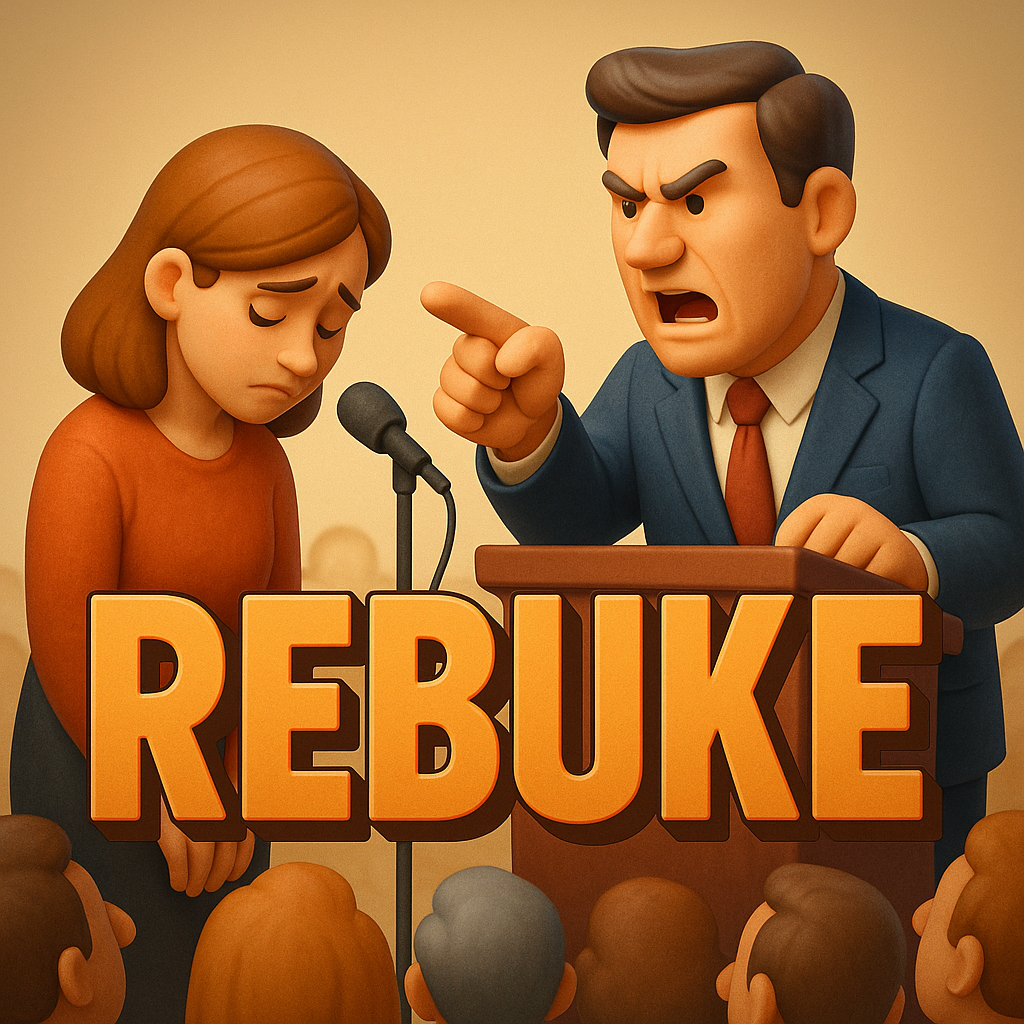Rebuke
Definition
The word "rebuke" refers to (1) an expression of sharp disapproval or criticism (noun); and (2) to express such disapproval or to reprimand sharply (verb).
Parts of Speech
- Noun
- Verb
Pronunciation
American English
- IPA: /rɪˈbjuːk/
- Respelling: ri-BYOOK
British English
- IPA: /rɪˈbjuːk/
- Respelling: ri-BYOOK
Etymology
From Middle English rebuken, from Old French rebuchier “to strike back, cuff,” from re- “back” + buchier “to strike” (Germanic origin). Entered English in the late 14th century.
Derivatives
- Rebukable (adjective)
- Rebukingly (adverb)
- Rebuker (noun)
Synonyms
- Reprimand
- Censure
- Admonish
- Chide
Antonyms
- Praise
- Commend
- Approve
- Compliment
Usage
"Rebuke" appears in contexts of discipline, criticism, and moral correction. Examples: "The teacher’s stern rebuke silenced the class," and "He was rebuked for his careless mistake."
Related Terms
- Reprimand: Formal expression of disapproval.
- Censure: Official condemnation.
- Admonition: Gentle warning or counsel.
- Chastise: To punish or criticize severely.
Detailed Definitions
Noun
- An expression of sharp disapproval or criticism: A verbal reprimand or harsh criticism.
- Example: "She received a public rebuke for her comments."
Verb
- To express sharp disapproval or criticism: To chastise or reprimand someone.
- Example: "The manager rebuked the staff for missing the deadline."
- To reprimand sharply or admonish: To scold or censure severely.
- Example: "He was rebuked by his coach for lack of effort."
rebuke








